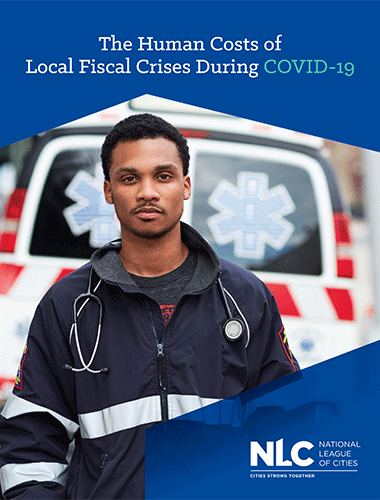Cities are not only on the frontlines of emergency responses to COVID-19, they also bear the brunt of the economic downturn caused by the pandemic. Our latest report, The Human Costs of Local Fiscal Crises During COVID-19, is a look back at the Great Recession, and how that crisis impacted cities.
Authors David Reinecke, PhD, Postdoctoral Research Associate, Princeton University and Philip Rocco, PhD, Assistant Professor of Political Science, Marquette University were able to draw commonalities on the limited choices cities had when confronting a fiscal crisis without federal support, and the effects these choices have on access to basic public services, employment and quality of life.
Key findings include:
- During the recession, regardless of party control, cities were forced to cut billions in spending on vital services.
- When backed up against a wall, municipalities were forced to choose between cutting streetlights and snowplows, between libraries and health facilities.
- It’s clear, local budget cuts from the Great Recession weakened our public health infrastructure, leaving many cities underprepared for this pandemic.
- Without direct local aid, Americans will continue to fight COVID-19 with one or both arms tied behind our back.
Report created in partnership with researchers from Princeton University and Marquette University.

